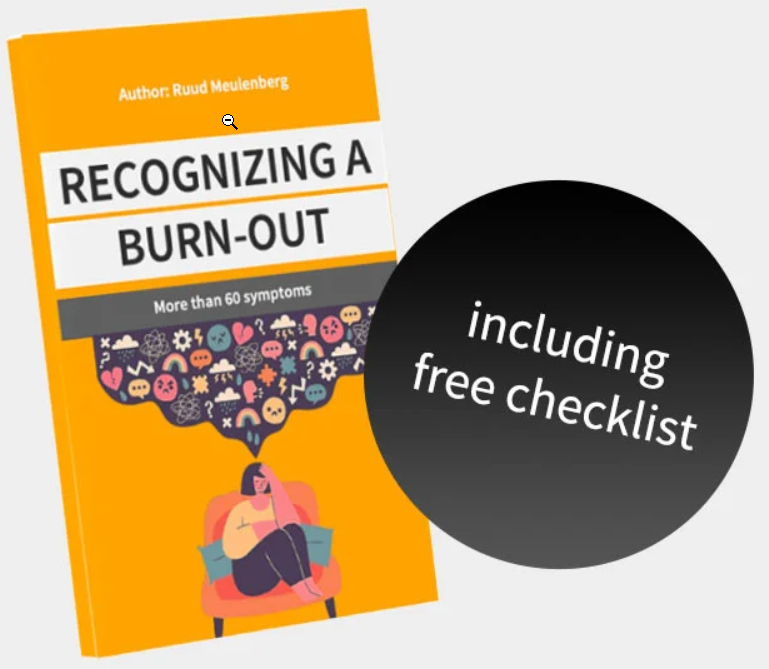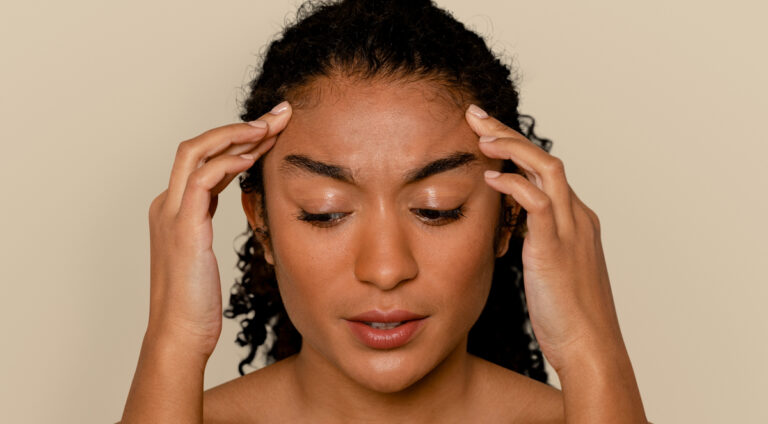Coffee, tea, Red bull, chocolate. Name your poison, and chances are it’s made with caffeine. The stimulant is found in natural sources like coffee beans and cacao; it’s also found in many unexpected and surprising places, like soda or marshmallows. The drug is world-renowned for its mild stimulant effects. But can it cause stress?
Stress comes with the territory of being alive in this modern world. The most general and simplistic definition is that stress is everyday pressure. It can take many forms, including physical and emotional distress. You may feel stressed, anxious, or even angry when you suddenly have to perform well in a test or responsibility that increases the pressure on your life. As we explore the relationship between stress and caffeine consumption, it’s clear it’s complex.
What is Caffeine?
Caffeine, a stimulant drug composed of 1,3,7-trimethylxanthine, influences the central nervous system (CNS) by acting as a stimulant through the suppression of adenosine receptors. Adenosine, an inhibitory neurotransmitter, typically moderates neural activity, including cardiac and respiratory rates. The suppression of adenosine receptors by caffeine results in an acceleration of neural activity throughout the body.
Choose the help that suits you.
Our dedicated team of experts is here to guide and support you in the most difficult times of your life.
This stimulant is naturally present in various plants, including coffee beans, cocoa beans, and tea leaves. Additionally, it can be synthetically produced for industrial purposes. Common sources of caffeine include coffee, tea, chocolate bars, and energy drinks. Understanding the impact of caffeine on adenosine receptors sheds light on its stimulating effects on the central nervous system.
Understanding the Effects of Caffeine on the Body
This drug enhances cognitive functions by releasing neurotransmitters in the brain, promoting improved focus, concentration, and alertness. Simultaneously, it induces a surge of energy, resulting in a jittery and energized feeling post-consumption. However, this heightened energy can also lead to feelings of anxiety and irritability, persisting for up to 90 minutes after ingestion.
Several other physiological effects accompany the stimulant’s impact on the body:
- Diuretic Effect: The stimulant triggers an increased production of urine, causing a diuretic effect that may lead to dehydration.
- Blood Flow Increase: Caffeine induces a heightened blood flow, potentially lowering a person’s blood pressure.
- Dental Risks: Regular consumption of caffeinated beverages, especially in the form of coffee and tea, elevates the risk of dental problems due to weakened tooth enamel.
- Kidney Stone Risk: Exceeding four cups of coffee daily significantly raises the risk of developing kidney stones.
Many individuals turn to caffeinated beverages as an afternoon pick-me-up to combat fatigue and maintain alertness during the workday, avoiding the onset of tiredness as the evening approaches.
How Caffeine Affects the Mind
Caffeine is commonly enjoyed for its taste and the positive impact it can have on the mind. It can boost mood and help with focus, making it easier to concentrate on tasks. Caffeine also improves attention span and aids in remembering things, making it easier to understand what people are saying.
However, for people dealing with stress, burnout, anxiety, panic attacks, or trouble sleeping, caffeine might not be as friendly. These individuals are more likely to experience stronger physical and mental effects. It can make existing anxiety or stress worse, potentially leading to panic attacks and increased feelings of anxiety.

Download our
free e-book
Recognizing a burnout
(more than 60 symptoms)
Some people turn to caffeine to try and calm their nerves, thinking it helps with anxiety and stress. But for those more sensitive to its effects, it can actually cause feelings of fear. Using caffeine regularly for a long time might lead to dependence, where the body craves it and shows withdrawal symptoms when you don’t have it. It’s essential to be aware of how caffeine can impact your mental well-being and make informed choices about how much you consume.
The Link Between Caffeine and Stress
While caffeine is useful in increasing energy levels and focus, it can have many detrimental effects on the body in large amounts. For many people, moderate consumption is not harmful. However, in everyday life, many people consume more because it is so easily available daily.
The mild stimulant activates the stress axis in the brain by releasing cortisol and adrenaline. This increases blood pressure and heart rate and dilates blood vessels. During high stress, it will increase the effects, longevity, and severity of your stress response.
Recognizing Signs of Excessive Caffeine Consumption
If you’ve been indulging in a bit too much caffeine, you might be experiencing unexpected symptoms. Here are some common indicators:
- Anxiety: Feeling suddenly jittery, irritable, or experiencing a racing heartbeat could signal overconsumption. While caffeine initially helps reduce inhibitions and promotes relaxation, excessive intake may paradoxically heighten anxiety, worsening existing anxiety conditions.
- Dehydration: Caffeine’s diuretic nature may lead to increased urination, causing dehydration if fluids are not adequately replenished. Dehydration can result in tension headaches, fatigue, and mental fogginess, potentially exacerbating conditions like PMS or depression.
- Heartburn and Acid Reflux: Discomfort in the chest or throat, along with a burning sensation in the stomach after consuming caffeine, may indicate acid reflux or irritable bowel syndrome.
- Insomnia: Caffeine’s stimulating effects can disrupt sleep, making it difficult to both fall asleep and stay asleep. Increased awakenings during the night and trouble falling asleep are common signs of excessive caffeine consumption.

- Caffeine Crash: When the effects wear off, a caffeine crash may occur, leaving you feeling tenser than usual. Symptoms may include restlessness, fidgetiness, nausea, heightened sensitivity to light and sounds, and increased feelings of anxiety and agitation.
- Headaches: Frequent headaches or migraines may result from caffeine-induced dehydration and alterations in serotonin levels, intensifying and prolonging the duration of headaches.
- Pregnancy Risks: Pregnant individuals should limit caffeine intake to reduce the risk of complications, including miscarriage, premature birth, and low birth weight.
- Addiction: Some individuals may develop an addiction to caffeine’s energy boost, experiencing agitation, irritability, or moodiness when deprived of their regular dose. This dependency can lead to anxiety, stress, panic attacks, and interference with daily functioning.
Being aware of these signs can help you make informed decisions about your caffeine consumption for a healthier and more balanced lifestyle.
Tips to Reduce Caffeine Intake
- Choose a Healthier Option: If you love coffee, opt for organic coffee grown in mineral-rich soil. It won’t be as acidic, which will reduce the severity of any negative symptoms from occurring. Decaffeinated coffee is also a good option.
- Keep Hydrated: Without proper hydration, your body will experience more cravings. This will make it more difficult to reduce your intake, so keep hydrated to reduce those cravings.
- Slowly Decrease Your Intake: Start by consuming half the amount that you normally do. Then, try to stay at this level for a few days. Then look to reduce your intake by half every few days until you reach zero. If you miss it, cut back one quarter at a time.
Where Can I Get Help to Reduce Caffeine Consumption?
If you are dealing with too much caffeine, you can work with a professional to help you quit your habit or reduce your consumption. There are many options of help available:
Dietician
A certified dietitian can work with you and help you understand the best way to incorporate healthy habits that benefit your long-term health. You can lose weight, gain energy, and feel more clear-headed due to a more nutritious diet and regular exercise.
Psychiatrist/Stress Coach
You can also talk to a trained and certified psychiatric or stress coach practitioner to help you get the support you need. They can help with stress, anxiety, and depression and recommend other helpful therapies that may help. Burnout, chronic pain, and sleep disorders can be treated naturally and healthily, allowing you to live a better life.
Medication
Health professionals may prescribe various medications to help you decrease your intake. Benzodiazepine, a common class of drug used to treat anxiety and insomnia, can be prescribed in certain cases. It can be especially useful for those who have become dependent.
Stress & burnout coaching; for 100% recovery!
Reducing stress and recovering from burnout is simply incredibly difficult. The coaches at Meulenberg Training & Coaching understand exactly what you are going through and know how tough it can be. They have often experienced it themselves! With their years of experience and expertise, they are ready to help you step by step toward a full recovery. The results of our one-on-one coaching and absenteeism training will benefit you for a lifetime!
FAQ
References
- Nbcnews.com – How much coffee is too much? What experts and research say about where to draw the line – Found on 22/04/2024
Link to a page on nbcnews.com






